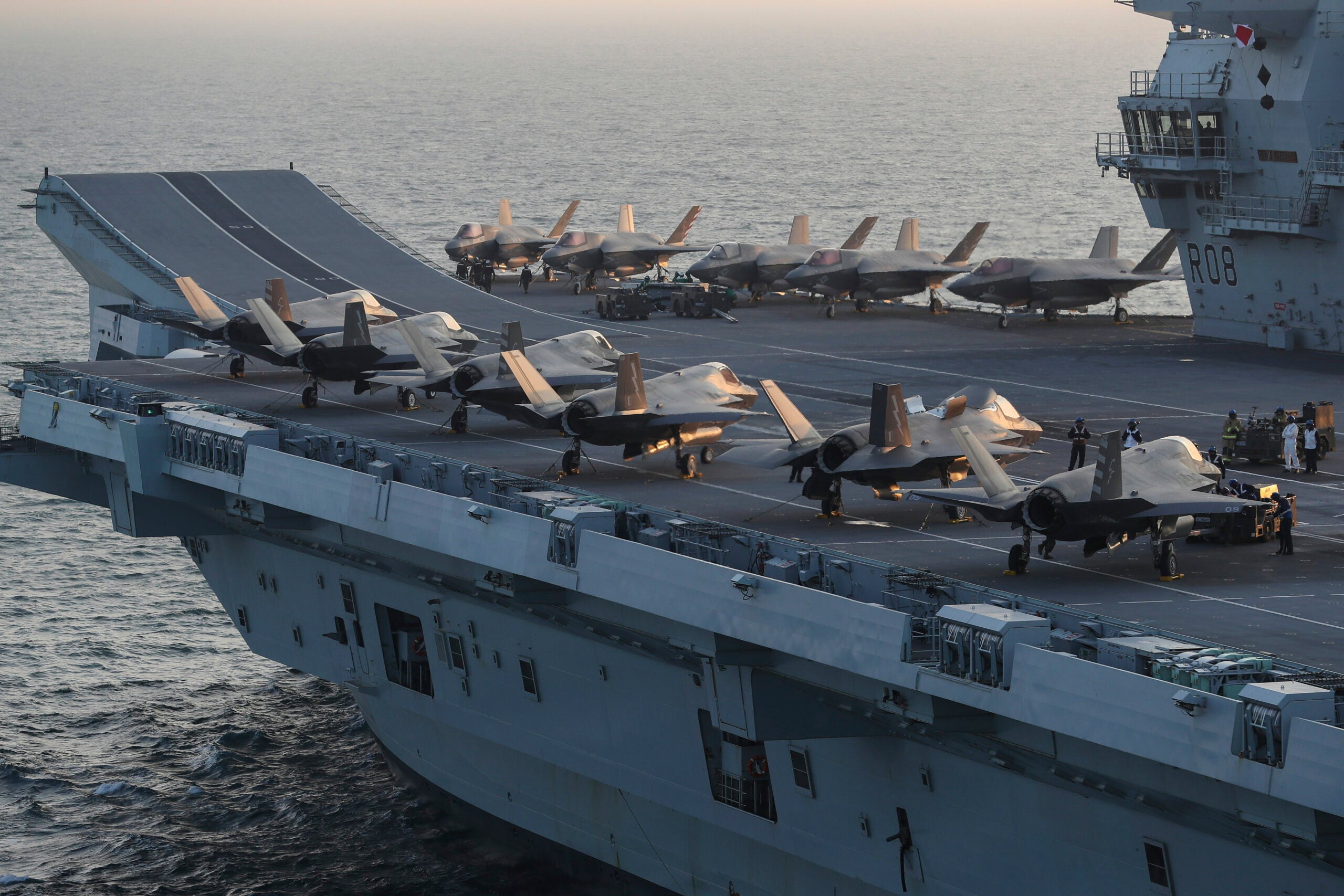
Johnson also announced that the UK Government was committed to the development of a next-generation frigate, the Type 32. While few details have been confirmed about the nature of the Type 32, some naval analysts believe it will be an export version of the UK’s new Type 31 general purpose frigate.
Johnson said: “We shall use our extra defence spending to restore Britain’s position as the foremost naval power in Europe, taking forward our plans for eight Type 26 and five Type 31 frigates, and support ships to supply our carriers.
“We are going to develop the next generation of warships, including multi-role research vessels and Type 32 frigates. And this will spur a renaissance of British shipbuilding across the UK – in Glasgow and Rosyth, Belfast, Appledore and Birkenhead – guaranteeing jobs and illuminating the benefits of the Union in the white light of the arc welder’s torch.”
Can confirm the Type 32 frigate mentioned by the Defence Secretary is an export version of Type 31.
RN hopeful of additional a second batch beyond the 5 Type 31s on order with an aspiration for escort fleet of 24 Frigates & Destroyers
(Library photo) pic.twitter.com/f7xhoHZPni
— NavyLookout (@NavyLookout) November 19, 2020
The naval comments came as the Prime Minister announced a £16.5bn increase in UK defence spending over the next four years, the creation of a Space Command and a new joint Ministry of Defence (MOD)-GCHQ Cyber Force.
The MOD said the extra money confirmed the UK’s plans to purchase eight Type 26 frigates from BAE Systems, and five Type 31 Frigates from Babcock – all of which are being built in Scotland.
The funding will also support the purchase of three new Fleet Solid Support ships seen as vital to the deployment of Carrier Strike groups centred around the UK’s two new aircraft carriers and will also support the development of a new multi-role research vessel.
Johnson added: “If there was one policy which strengthens the UK in every possible sense, it is building more ships for the Royal Navy.”
The Prime Minister’s comments followed an earlier mention of the future Type 32 frigate today by Defence Secretary Ben Wallace. Speaking on BBC Radio 4, Wallace said: “We’re going to commit to the next generation of Frigate, the Type 32, we’re going to commit to bringing online the Type 31, Type 26 frigates in Scotland, and destroyers, by committing to that that will unlock investment in those yards.”
Naval Technology understands that the Royal Navy is seeking to build an escort fleet of around 24 frigates and destroyers.
In his statement, Johnson also confirmed that next year on its maiden voyage HMS Queen Elizabeth would deploy to the Mediterranean, Indian Ocean and East Asia. Previously it had been an open secret that the ship would likely visit waters near China in a freedom of navigation exercise.
Johnson also said that the Royal would be more forward-deployed across the world. Earlier this year the MOD said it was expanding port facilities in Oman, which could be used to support the forward deployment of ships to the Middle East and contested Strait of Hormuz.
This historic increase in defence spending will enable our Armed Forces to modernise, plan for the future and adapt to the threats we face.
The Defence Secretary has welcomed the PM’s announcement of a further £16.5 billion in funding over the next four years.@BWallaceMP pic.twitter.com/QWAJiO1FyR
— Ministry of Defence ???????? (@DefenceHQ) November 19, 2020
The PM also appeared to quash any further rumours that one of the UK’s two new aircraft carriers could be sold as was rumoured during the Integrated Review process saying: “Once both of our carriers are operational in 2023, the UK will have a Carrier Strike Group permanently available, routinely deployed globally and always ready to fight alongside NATO and other allies.”
The CEO of Infrastrata – the owner of Harland & Wolff and in Belfast and the historic Appledore shipyard – John Wood welcomed the commitments to shipbuilding saying it paved the way for a substantial body of work for UK shipyards.
Wood said: “When we acquired both the Belfast and Appledore shipyards, we set out a vision to unlock the potential of these two critical and strategic facilities. The Harland & Wolff Group is determined to make the most of this increased defence budget and commitment to UK naval power.
“It is clear from today’s announcement that there will be substantial packages of work available, with an additional eight Type 26 and five Type 31 vessels being confirmed in addition to Type 32 and other research vessels”



